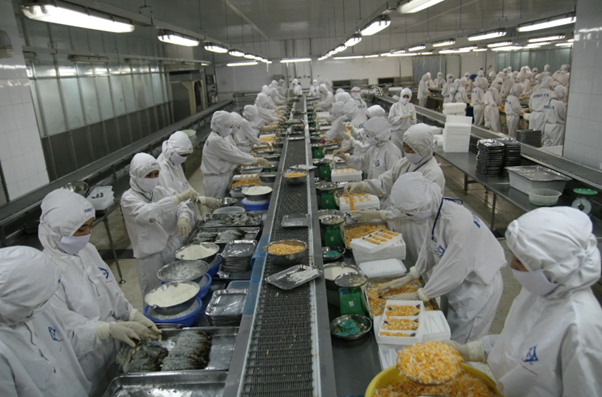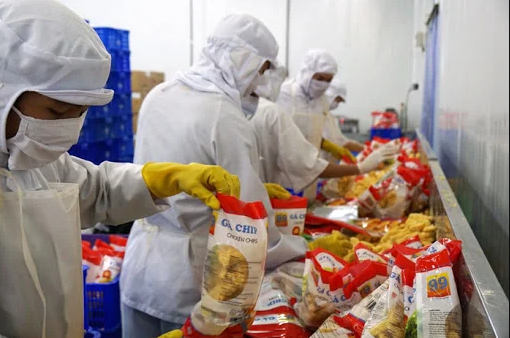What is a food safety license? Who is required to have one?
Nowadays, as consumers are increasingly concerned about health and food quality, ensuring food hygiene and safety has become a vital factor for production and business establishments. In particular, the Food Safety and Hygiene Certificate (FSHC) is a mandatory legal requirement for any business wishing to operate legally and sustainably. So what exactly is this certificate? Who is required to have it? Let’s explore the details below.
1. What is a Food Safety and Hygiene Certificate?
The Food Safety and Hygiene Certificate is an official document issued by a competent authority to organizations or individuals engaged in food production or business, once the establishment meets all legal requirements on food safety and hygiene.
This is not only a legal obligation but also a proof of quality and a commitment to protecting consumers’ health by the business.
2. Why is the Food Safety and Hygiene Certificate necessary?
The certificate acts like a “legal passport,” enabling businesses to:
- Operate legally under the law.
- Enhance brand reputation in the eyes of consumers and partners.
- Facilitate entry into supermarkets, distribution chains, and exports.
- Avoid legal risks such as fines or suspension during inspections.
Especially in today's environment where consumers demand "clean" food, owning a Food Safety and Hygiene Certificate gives businesses a competitive edge in the market.

3. Who is required to have a Food Safety and Hygiene Certificate?
According to the Food Safety Law and its guiding documents, the following groups must obtain a Food Safety and Hygiene Certificate before starting operations:
- Food production and processing facilities: including fresh food, packaged food, functional food, etc.
- Food business establishments: wholesale, retail, restaurants, food stalls at markets, etc.
- Food service businesses: wedding restaurants, collective kitchens at companies, schools, etc.
- Food storage and distribution facilities: cold storage, food logistics centers, etc.
Operating without a certificate means the establishment is illegal and subject to heavy penalties upon inspection.

4. Exemptions from the certificate
Though mandatory in general, the law provides exemptions for small-scale production to support local businesses. The following cases are exempt from the Food Safety and Hygiene Certificate:
- Small household businesses without fixed premises.
- Establishments selling only pre-packaged food with clear labels and origins.
- Small local agricultural processing units without deep processing activities.
However, these entities must still commit to ensuring food safety and hygiene and remain subject to official supervision when required.
5. When and how long is the certificate valid?
- Required time: Before the establishment officially starts operating or during the business licensing process (depending on the industry).
- Validity: 3 years from the date of issue.
- Renewal: Must be done at least 30 days before the expiration date.
Letting the certificate expire without renewal may result in legal violations and administrative penalties.
6. Consequences of operating without the certificate
Operating without a Food Safety and Hygiene Certificate may lead to serious consequences such as:
- Fines ranging from 20 to 100 million VND depending on severity.
- Business suspension, product recall, or destruction of unsafe food.
- Loss of reputation and customer trust.
- Exclusion from supply chains of supermarkets, restaurants, and modern retail systems.
In the context of increasingly strict food safety control, lacking a certificate is a major obstacle to business growth.

7. Full-package support service for obtaining the certificate
In practice, many establishments struggle to obtain a Food Safety and Hygiene Certificate due to lack of experience, unfamiliarity with legal procedures, or failure to meet facility requirements.
To save time and ensure compliance, many businesses choose a full-package certificate service, which offers:
- Consultation on renovating and organizing the facility to meet standards
- Guidance on health checks and staff training
- Support with completing and submitting valid applications
- Representation in working with authorities
- Commitment to timely certificate issuance
8. Thien Di Law – Trusted legal solution for food safety certification
If you're looking to obtain a Food Safety and Hygiene Certificate but don't know where to start, let Thien Di Law accompany you. With extensive experience in legal and administrative procedures, we provide a full-package service that is fast and compliant with legal regulations.
Contact Thien Di Law now for free consultation and swift document processing – helping you focus on your business with peace of mind and sustainable growth.
Contact information:
THIEN DI LAW COMPANY LIMITED
Address: No. 36, A4 Street, Ward 12, Tan Binh District, Ho Chi Minh City
Hotline: 0982 020 789 - 0868 083 683
Phone: 028.6293 9377
Email: info@luatthiendi.com
Website: luatthiendi.com